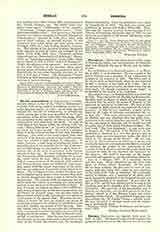

Herrera, FERNANDO DE, Spanish lyric poet; b. 1537; d. 1597. The head of a school of lyric poets who gathered about him at Seville, Herrera was an avowed disciple of Garcilasso de la Vega, whose form he perfects and to whose expression he adds more pathos and dignity. Although a cleric, having taken minor orders, he rarely reflects in his verse the feelings of a churchman. On the contrary, it is the martial note that he sounds most loudly and most frequently, when he is not singing in Petrarchian strains of his Platonic attachment—it should be remembered that he had only minor orders, and had probably taken them only that he might enjoy certain ecclesiastical benefices—to Eliodora, that Is, Leonor de Milan, Condesa de Gelves and wife of Alvaro de Portugal. The most famous of his compositions are the odes in which he extols the prowess of Don John of Austria, as exhibited in the suppression of the outbreak of the Moriscos in the region of the Alpujarras and at the battle of Lepanto, and commemorates the death of Dom Sebastian, King of Portugal, who perished with the flower of the Portuguese nobility during a Quixotic expedition against the tribes in Northern Africa. These are classics of Spanish literature. That Herrera was not devoid of critical acumen is proved by his prose “Anotaciones a las obras de Garcilaso de la Vega”, his poetical master. In the opinion of Ticknor, he deliberately undertook to create a new poetical diction and style in Spanish, deeming that the language as written before his time lacked the full measure of dignity, sonority, and poetic pliancy that it should have; but Ticknor has probably exaggerated the endeavors of Herrera in this direction, in so far as any conscious process is concerned. However the case may be, it must be admitted that there is real beauty and majesty in the verse of Herrera, and that his countrymen are right in terming him “the divine” (el divino). He himself published only part of his verse, “Algunas obras” (Seville, 1582). His “Poesias” are accessible in the “Biblioteca de autores espanoles”, vol. XXXII; the ode “Por la victoria de Lepanto” was edited critically by Morel-Fatio (Paris, 1893).
J. D. M. FORD

